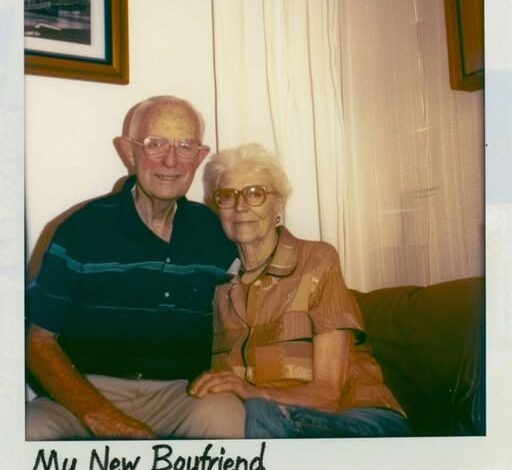
I Fell for My Daughter-in-Laws Grumpy Neighbor, but Thanksgiving Exposed the Awful Truth About Our Relationship
When I moved in with my son Andrew and his wife, Kate, I thought it would be temporary—a few quiet weeks while my “injured” leg healed. In truth, the injury wasn’t as serious as I’d made it sound, but I was lonely, and Andrew’s house was warm, filled with life. Kate, however, wasn’t thrilled. She’d tolerated my visits before, but having me under her roof full-time? That was another story.
She tried to hide her irritation at first, but it seeped through in every tight smile, every clipped word. I told myself I didn’t care—she’d married my son, after all, and family means compromise. But the tension grew daily, thick enough to choke on.
One crisp morning, I spotted her in the yard, clumsily raking leaves. I called out, “You’re doing it wrong! Make small piles first, then gather them together.” She ignored me completely.
I hobbled down the steps, exaggerating my limp for sympathy. “I’m just trying to help,” I added pointedly.
Kate turned, her face pale from pregnancy and fatigue. “I thought your leg hurt,” she said coolly. “Maybe you should rest—or go home.”
The nerve of that woman. “I was trying to help you despite the pain,” I snapped, clutching my leg dramatically.
She rubbed her belly, her voice sharpening. “I’m seven months pregnant, Margaret. Helping would mean actually doing something useful.”
I bit back the retort that burned on my tongue. My son’s wife or not, she was rude.
That’s when I noticed Mr. Davis, the grumpy widower next door, glaring at us over the fence. I waved cheerfully. “Good afternoon, Mr. Davis!” He grunted and disappeared without a word. Miserable man. He and Kate would have gotten along perfectly.
Inside, I sighed at the dust collecting on the furniture. Kate was on maternity leave—what did she do all day? My son deserved better. I made a mental note to “help” her again later.
By evening, Kate was cooking. I offered some friendly advice on her pie crust, but she snapped, “Please, just leave the kitchen.” When Andrew got home, I overheard her telling him I was difficult. He comforted her, arms around her shoulders like she was the one suffering. The sight made my stomach twist.
At dinner, I couldn’t resist one last jab. “This pie’s a little undercooked, dear,” I said sweetly.
Kate forced a smile. “Maybe you could bake one for Mr. Davis next door. I’m sure he’d appreciate it.”
I frowned. “That grump? He’s as pleasant as a cactus.”
Kate shrugged. “I think you’re mistaken. He’s just shy. And I’ve seen how he looks at you.”
I laughed—sharp and hollow. “If that’s true, he can do the courting. A proper man should.”
She and Andrew exchanged a glance I couldn’t read.
The next morning, I nearly dropped my teacup when Mr. Davis appeared at the gate. “Miss Miller,” he said stiffly, “would you join me for dinner tonight?”
For a moment, I was speechless. Then I raised an eyebrow. “It’s Ms. Miller, and yes, I suppose I could.”
He nodded curtly and walked away. Not exactly Prince Charming, but still… dinner was dinner.
That evening, I dressed carefully, smoothing my hair and adding a hint of perfume I hadn’t worn in years. When he opened the door, his expression was as serious as always. No flowers, no compliments—just a brusque “Come in.”
The table was simple but neatly set. We ate mostly in silence until I mentioned jazz, my lifelong love. Something shifted in his face—his eyes softened, his voice gentled. “I’d play my favorite record for you,” he said, “but my player’s broken.”
“You don’t need music to dance,” I teased.
To my surprise, he stood and offered his hand. I hesitated only a second before taking it. He hummed softly as we swayed in the dim light. My chest ached, not from sadness, but from something I hadn’t felt in years—affection.
When I left, he walked me to the door. “You can call me Peter,” he said quietly.
“Then you can call me Margaret,” I replied, smiling. He kissed me, soft and uncertain, and for a brief, dizzy moment, I forgot my bitterness.
In the weeks that followed, Peter became my refuge. We spent afternoons reading, cooking, laughing—things I hadn’t done since my husband died. Even Kate’s constant irritations faded into the background.
When Thanksgiving came, I invited Peter to join us. He accepted, and for once, the house felt full of warmth instead of tension. But midway through the evening, I noticed him slip into the kitchen with Kate. Curiosity prickled at me, and I followed.
“Kate, I wanted to talk about the record player,” he said in a low voice.
“Don’t worry, I’ve ordered it,” she replied. “You’ve been wonderful. I don’t know how you put up with her, but soon you’ll have your record player. Thank you for agreeing to this charade.”
I froze. Charade?
My heart pounded. “So this was all a game?” I demanded, storming into the kitchen.
Kate’s face went white. “Oh… Margaret, I—”
“Care to explain?” I snapped.
Andrew appeared, clearly having heard the commotion. “Mom, please, calm down.”
“Don’t tell me to calm down!” I shouted. “Your wife set me up like some joke!”
Andrew sighed. “It wasn’t just Kate. It was my idea too. We thought you and Mr. Davis might actually make each other happy. You both needed company, but neither of you would take the first step. So… we gave him a little incentive.”
“Incentive?” I asked sharply.
“We offered him a record player,” he admitted.
I stared at Peter. “Is that true?”
Peter opened his mouth, but Kate cut in, her voice trembling. “You were making my life miserable, Margaret. Constant criticism, constant judgment. I’m pregnant, exhausted, and I needed space. So yes—we did it. But you seemed happier. I thought we’d all won.”
My throat tightened. “You manipulated me.”
Peter stepped forward. “Margaret, please—”
“No,” I snapped, turning on him. “You took their offer. You used me.”
He looked pained. “At first, yes. But then everything changed. I told Kate to keep her record player. I didn’t care about it anymore—I cared about you.”
“Why should I believe that?” I asked bitterly.
“Because you made me feel alive again,” he said, voice breaking. “You’re infuriating, yes, but also kind, passionate, and full of life. You made me laugh. You made me hope. I haven’t felt that in years.”
Something inside me cracked. The sincerity in his voice was too raw to be false.
I wanted to stay angry, but tears spilled down my cheeks instead. He brushed one away gently. “I’m sorry for how it started,” he whispered. “But I love you, Margaret. That part is real.”
For a long moment, I said nothing. Then I sighed. “Alright,” I murmured. “But you’re keeping that record player—for us. We’ll need it for dancing.”
Peter laughed, the tension melting away.
From that Thanksgiving forward, he was no longer my grumpy neighbor—he was my partner, my companion, my reason to smile again. Every year, we’d play music on that same record player and dance together in the living room, humming the same tune he’d once sung the night he changed my life.
And for the first time in decades, I was grateful—not for the deception that brought us together, but for the love that managed to survive it.




